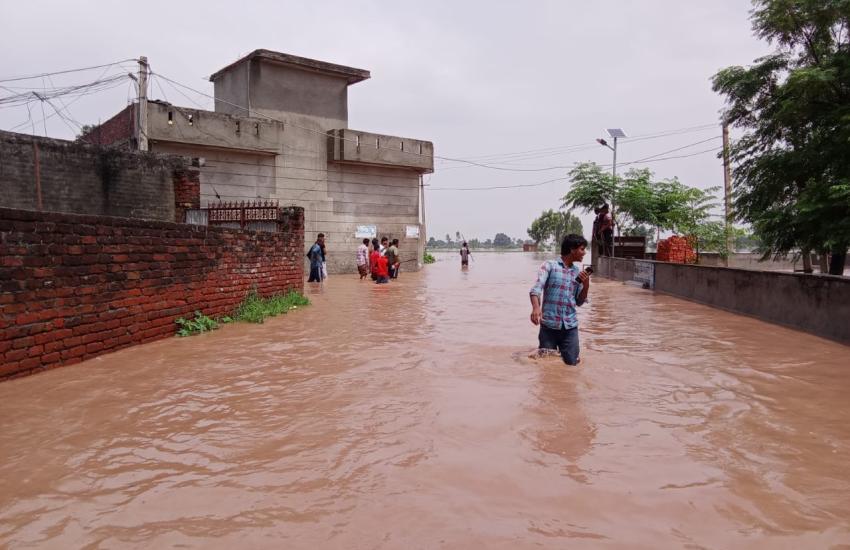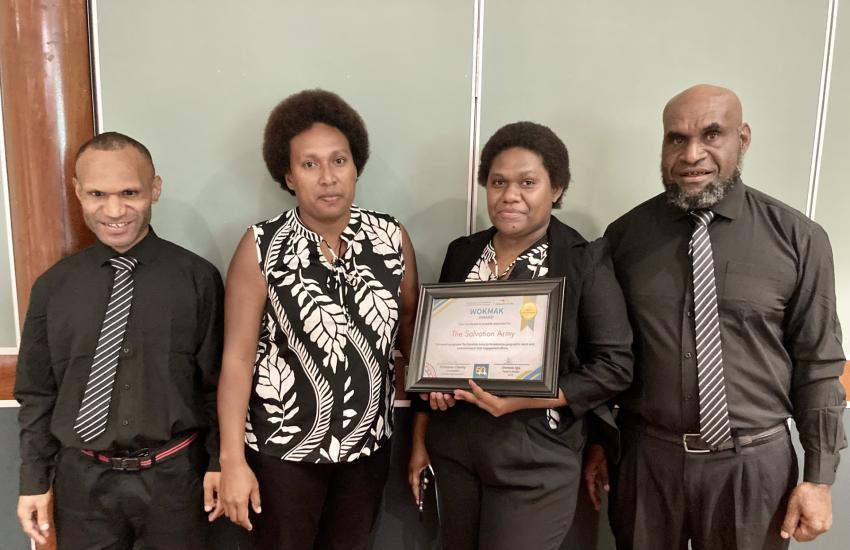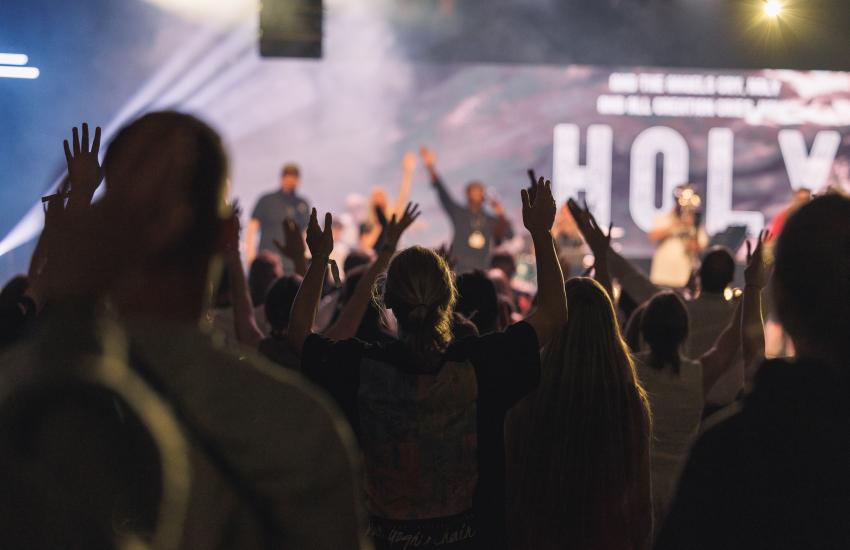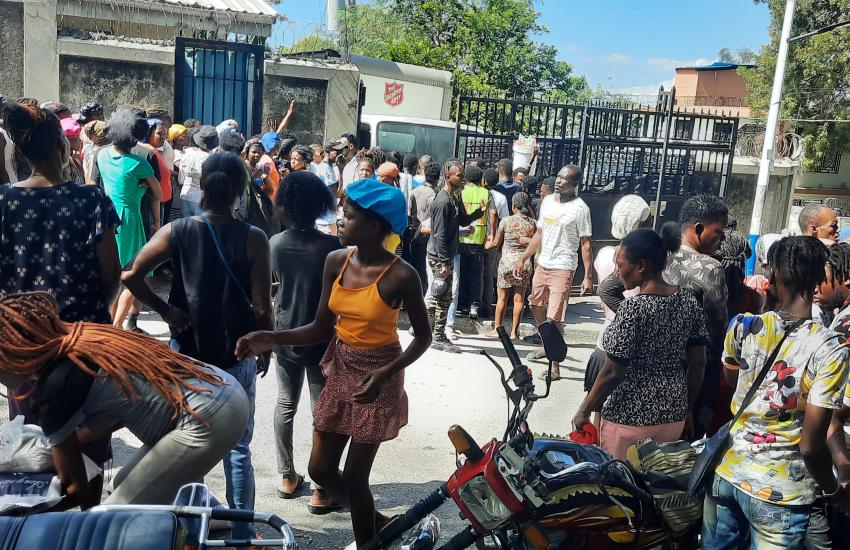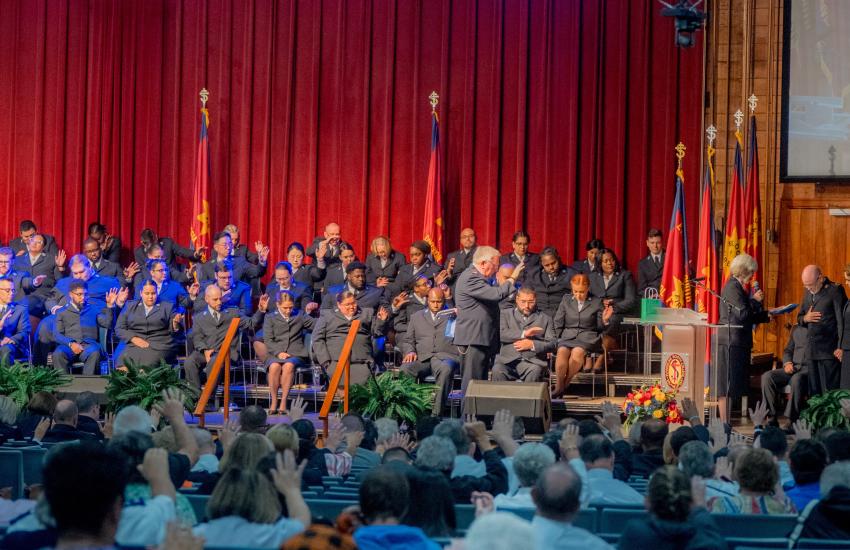 CHILDREN’S mental health is an important issue, and arguably even more so during the disruption to routines and reduced opportunities to socialise associated with the COVID-19 pandemic. In Sweden, The Salvation Army’s podcast Kylskåpsradion (which means ‘refrigerator radio’ – read on to find out why!) is proving to be a vital way to actively address topics from depression to bullying, and to bring a renewed sense of purpose and joy to listeners.
CHILDREN’S mental health is an important issue, and arguably even more so during the disruption to routines and reduced opportunities to socialise associated with the COVID-19 pandemic. In Sweden, The Salvation Army’s podcast Kylskåpsradion (which means ‘refrigerator radio’ – read on to find out why!) is proving to be a vital way to actively address topics from depression to bullying, and to bring a renewed sense of purpose and joy to listeners.
Kylskåpsradion stars Åsskar (pronounced ‘ors-kah’) – a nine-year-old puppet – and his human helper Gabriel. Åsskar enjoys the esoteric delights of cucumber ice cream and, for reasons known only to himself, counting up to 100,000. He also loves fridges, asking lots of questions and frequently misunderstanding Gabriel’s well-meaning responses. This leads to much laughter as twenty-something, music-loving Gabriel tries to explain even more carefully. No subject is too difficult for the duo, and questions from listeners are actively encouraged.
'Question box'
At the heart of Kylskåpsradion is the ‘question box’. In 2020, the podcast received 3,400 questions, of which 2,300 were addressed on the programme by Gabriel and Åsskar. Transparency and openness are key to the podcast. Since its creation in June 2018, there have been 240 episodes produced, totalling more than 162 hours of audio content, with more than a quarter of a million downloads.
Åsskar points out that ‘if one child has a question about bullying, there may be 100 more listening who are in the same situation but didn’t dare ask.’ Gabriel adds: ‘Another benefit of answering questions openly is that vulnerable children tend to feel lonely in their situations, and hearing other children’s stories can help reduce the feeling of isolation – it normalises conversation about issues that we might not usually want to talk about.’ In that light, says Gabriel, ‘the children support and inspire each other through the podcast – and Kylskåpsradion becomes a positive community online.’
Nurturing online community is especially important in Sweden, where by the age of three, 90 per cent of children are using the Internet. By age seven, that proportion has grown to 99 per cent, and nine out of ten 10-year-olds have their own smartphone. This exposes children to the risks of online bullying and other forms of abuse. Kylskåpsradion seeks to use the positives of digital environments to ‘counter the negatives and create a safe platform which spreads joy and hope,’ adds Gabriel.
Opening up
The trust that children have in the podcast is demonstrated by some of the questions that have been submitted and addressed. ‘I think I’m depressed,’ shared one anonymous young person. ‘I read in a magazine about how it is to be depressed and I recognise everything [it said]. What should I do?’
The range of topics is extensive. A 12-year-old boy asked the pair: ‘Weird things show up on my phone! What should I do? Help!’ Meanwhile, a 16-year-old girl commented: ‘I love your podcast! I wish I had found it earlier because my last years have been super tough. Yesterday I got the diagnosis [of] atypical anorexia. Your podcast helps me continue fighting the anorexia. Never stop podcasting.’ And an eight-year-old posted: ‘Hi. I’m being bullied. I broke my arm and my friends say bad things about me. Please can you help? Please. You’re the best. I listen to you every day.’
Åsskar interjects that it’s not just about the serious issues, but about having fun too. ‘I’ve done my own TikToks,’ he boasts. ‘And Kylskåpsradion is a place where listeners share all their best jokes!’ he chuckles. Gabriel nods. ‘That might be the best medicine of them all,’ he concurs.
A 12-year-old fan of the show agrees. ‘You help me relax when I’m stressed,’ she says. ‘While I am writing this, I am lying in bed crying over a fight at school with my brother. [But] you always make me feel good. I want you to know how much you do for me.’
The final word goes to a nine-year-old girl with a serious medical condition who regularly listens and contributes to Kylskåpsradion: ‘I have breast cancer, but always become much happier when I listen to you. Please can you do more episodes every week, because it’s so boring [being] on all the treatments. Thank you for talking about [such] important subjects.’
As a result of this request, a vote was held among Kylskåpsradion listeners, and the frequency was increased from weekly to twice a week. But that’s not the end of the young girl’s story…
‘I’ve written to you before [when] I had breast cancer. BUT I’M HEALTHY. NOW! Yaaaaaaaaay! I’m so happy!!! The nurse said they will recommend Kylskåpsradion to other kids who have cancer, and one of the nurses even started listening.
‘You helped me when everything felt hopeless, and because of YOU I felt hope … Thaaaaank Youuuuu!’
- Åsskar is a misspelling of the name Oscar, which is similar to the Swedish word for ‘thunder’ – a good description of Åsskar’s energy levels and enthusiasm!
- Usually, Gabriel and Åsskar also travel to different schools for live shows and classroom discussions about human dignity, as well as shows at camps and churches – around 300 to date. Because of COVID-19 this was limited in 2020, but in 2019 they hosted 18 shows and 37 classroom discussions in schools all over the country.
- Links to the podcast:
- ITUNES: apple.co/2AMH0yI
- SPOTIFY: spoti.fi/2BjBiU3
- PODBEAN: kylskapsradion.podbean.com
- WEBSITE: fralsningsarmen.se/kylskapsradion
- Pictures available at sar.my/asskar

